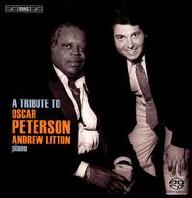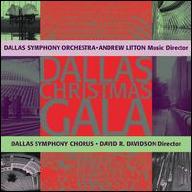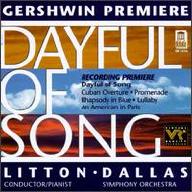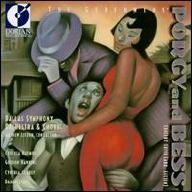Litton was born in New York on May 16, 1959. At New York's Juilliard School of Music, he studied conducting under Sixten Ehrling and piano under Nadia Reisenberg. Demonstrating exceptional ability, he won the Bruno Walter Scholarship for further study with Edoardo Müller, Neeme Järvi, and Walter Weller. Winning the 1982 Rupert Foundation International Competition in England provided Litton a debut conducting the BBC Symphony Orchestra later that same year and generous exposure to British audiences. He served first as associate conductor, then as assistant conductor under Mstislav Rostropovich with Washington's National Symphony Orchestra from 1982 to 1986. There, Litton learned much, especially from the man he describes as his "first and only boss." He gained numerous insights about Shostakovich from Rostropovich. Litton has expressed his belief that Shostakovich was the 20th century's great symphonist, capturing the struggles of living in modern times.
After his years with the National Symphony, he conducted widely throughout the U.S. and Europe before being appointed the principal conductor and artistic advisor of England's Bournemouth Symphony Orchestra in 1988. With the Bournemouth Symphony, Litton earned high marks from English critics and the approval of English audiences while attracting worldwide attention through a series of recordings. In 1994, he was appointed the music director of the Dallas Symphony Orchestra while becoming conductor laureate in Bournemouth. During this time, Litton undertook several opera assignments, making his Metropolitan Opera debut in 1989, leading a production of Eugene Onegin. When the Glyndebourne Festival production of Porgy and Bess, originally conducted by Simon Rattle, was revived at Covent Garden in 1992, Litton was chosen to lead it. He also conducted performances of Salome and Falstaff for the English National Opera.
In Dallas, Litton stepped into the comprehensive role played by an American music director with a clear understanding of his responsibility for not only conducting stimulating performances but also playing a key role in fundraising. He was there from 1994 to 2006, and his outgoing personality was an asset in meeting the people of Dallas and convincing them that their orchestra is an enhancement central to a vital community. Litton pointed with some pride to an endowment increase over seven years from $19 million to $100 million. Under Litton, the Dallas Symphony became the first major orchestra to broadcast a live concert via the Internet. He expressed the belief that this medium can break down prejudices about concert works and afford listeners an opportunity to respond and comment immediately. He was enthused over critics no longer having the final word. In 2003, Litton was appointed the music director of the Bergen Philharmonic Orchestra, leading the group in recordings and tours, which expanded the orchestra's visibility on the international scene. Litton was instrumental in founding Bergen's National Opera, which he conducted in acclaimed performances. He led the Bergen Philharmonic until 2015 when he was named music director laureate. That year, he was named the music director of the New York City Ballet. In 2017, he was named the principal guest conductor of the Singapore Symphony Orchestra.
Litton's prodigious recording career began with a 1986 album of Bach works with the English Chamber Orchestra and violin soloist Yuzuko Horigome. He has produced an impressive catalog of recordings with all of the groups he's led. His 1995 effort conducting the Bournemouth Symphony in a performance of Walton's Belshazzar's Feast, featuring Bryn Terfel, won a Grammy Award. A live recording of Stephen Sondheim's Sweeney Todd with the New York Philharmonic earned him a second Grammy nomination. In the 2010s, Litton and the Bergen Philharmonic began a cycle of Prokofiev's symphonies on the BIS label, concluding with a recording of the composer's first three, issued in 2020. ~ Erik Eriksson & Keith Finke, Rovi

















